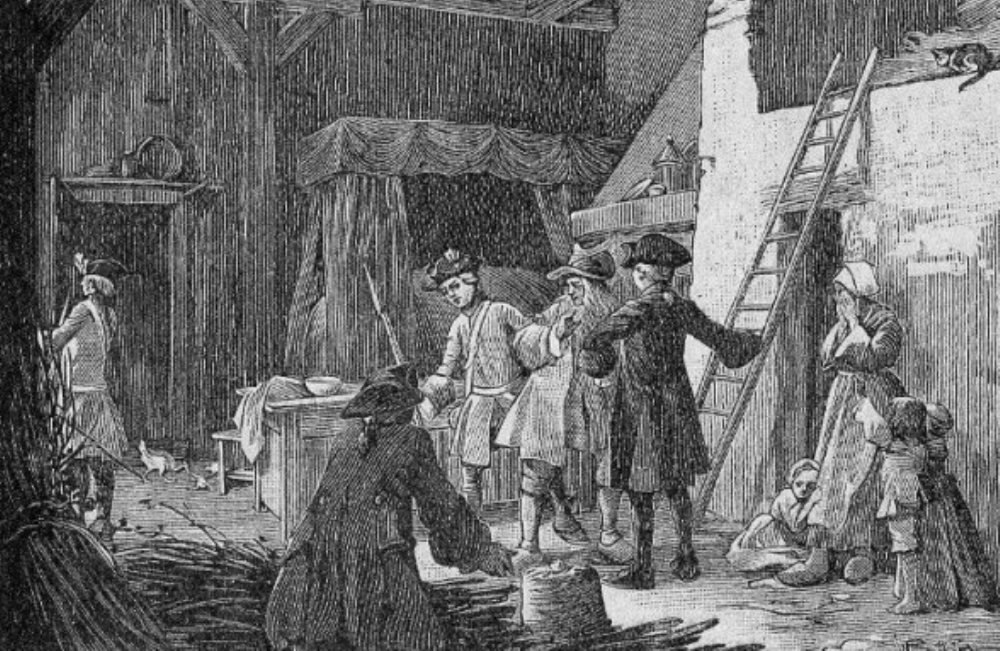Salt smuggling, also known as faux-saunage, became endemic under the Ancien Régime between Brittany and the Maine and Anjou regions, and was inextricably linked to the gabelle, or salt tax imposed at the point of sale.
This tax, established throughout the Kingdom of France between 1324 and 1366 had originally been a tax on exported salt, and later on internally traded salt too. The tax was not represented by a fixed sum throughout the kingdom and hit those living in the oldest royal territories hardest. Brittany was exempt from this salt tax, whereas the gabellants in the regions of Maine and Anjou had to buy their salt from the stores of the Ferme générale This included everyday salt for cooking, and if necessary ‘salt for extraordinary use’. The difference in price between salt in Brittany and regions with a high salt tax led people in the latter to procure untaxed salt, or ‘false-salt’, which was sold illegally by smugglers.

Salt smugglers would usually get their supply from an intermediary who had set up illegal depots in Brittany supplied by certain saltmarsh workers. From there, the salt was transported in an over-the-shoulder bag by people who travelled on foot, as well as hidden in loaves of bread, pats of butter, in little pockets made inside the lining of a piece of clothing, or in double bottomed crates. These people were mostly young and poor. They travelled in little groups of both sexes and devoted themselves to this clandestine activity.
Artisans, millers, innkeepers and others who worked in the high streets of the border villages also took part in salt smuggling on a different scale. Some trained dogs to run along the border, others smuggled in groups of more than ten individuals with the help of horse convoys.
The Ferme générale dealt with salt smugglers by maintaining squads of gabelous (nicknname for customs officers) along a 40-kilometre strip. These restrictive measures were accompanied by the threat of both ordinary and special tribunals. Established under Louis XV, the latter judged all cases of armed smuggling or smuggling combined with violent acts. Sentences varied; a fine, forced labour, branding… The contraband was always seized. You could also be exiled from the region or whipped.
The salt tax was revoked on 26th November 1789 by the National Constituant Assembly.
Translation: Tilly O'Neill


